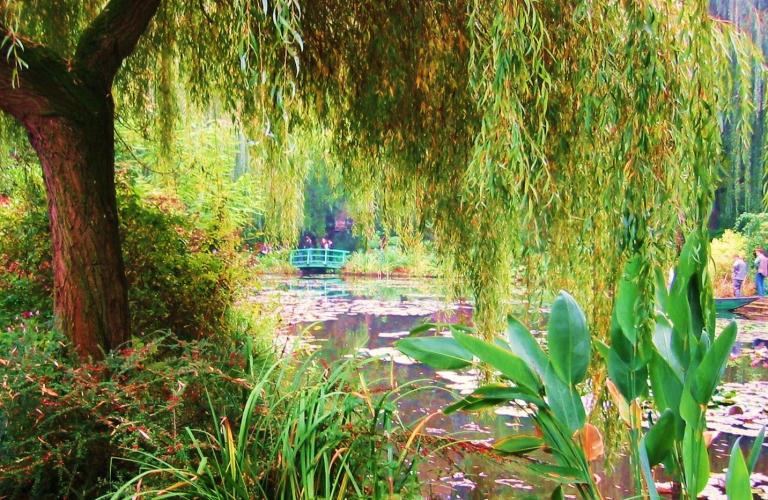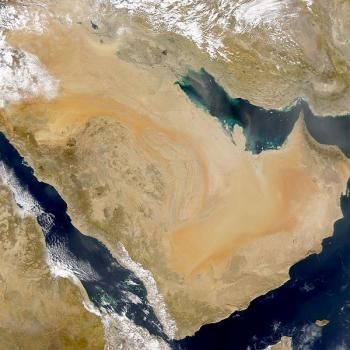
I’ve been reading a small collection of essays by the late Edward O. Wilson (1929-2021), the Harvard biologist, ecologist, and entomologist who is best known for developing the field of sociobiology: Every Species is a Masterpiece (London: Penguin Books, 2021). Wilson was also, by the way, an outspoken advocate of “scientific humanism” (a term that, indeed, he is said to have coined) and a vocal critic of religious belief, although he denied being an actual atheist.
The principal theme of Every Species is a Masterpiece — the phrase occurs on page 75 — is the importance of conserving biodiversity. Professor Wilson was afraid that we’re losing such diversity because of human actions and that, in fact, we’re currently in the midst of Earth’s seventh great extinction event. But that is not my principal interest here, although I plan to share a few passages from Dr. Wilson’s little book:
The creation of that diversity came slow and hard: 3 billion years of evolution to start the profusion of animals that occupy the seas, another 350 million years to assemble the rain forests in which half or more of the species on earth now live. There was a succession of dynasties. Some species split into two or several daughter species, and their daughters split yet again to create swarms of descendants that deployed as plant feeders, carnivores, free swimmers, gliders, sprinters, and burrowers, in countless motley combinations. These ensembles then gave way by partial or total extinction to new dynasties, and so on to form a gentle upward swell that carried biodiversity to a peak — just before the arrival of humans. Life had stalled on plateaus along the way, and on five occasions [increased, in a subsequent essay, to six] it suffered extinction spasms that took 10 million years to repair. But the thrust was upward. Today the diversity of life is greater than it was a 100 million years ago — and far greater than 500 million years before that. (26-27)
This is not actually my major point today, but I note with interest the faint wisps of an implicit (and, strictly speaking, illicit) teleology in Professor Wilson’s words above — in “a gentle upward swell,” “stalled,” “repair,” and “upward.”
Science as it is currently conceived can be said to have begun with Sir Francis Bacon’s explicit ban, in the late sixteenth and early seventeenth centuries, on considerations of teleology (purposes or aims, Aristotle’s “final cause”) from consideration by scientists as such. In particular, evolutionary theorists are generally quite anxious to deny to the processes of organic evolution — Richard Dawkins’s “blind watchmaker” — any purposes or conscious intent And an agnostic-leaning deist, as Professor Wilson is sometimes described, wasn’t really in a position to reinsert them (and almost certainly didn’t intend to do so).
In a purposeless world, there is, well, no purpose. No goal. What is, is. And, or so it seems to me, the proliferation of biological diversity has no more intrinsic “meaning” than does, say, the shattering of a granite boulder into thousands of variously shaped smaller fragments. There is, in that sense, no “up” or “down” except in mere numbers. And so, if we’re going to be honest about our denial of purpose in the cosmos, we have to be thorough-going and consistent about it.
But my real point in citing Dr. Wilson here is to capture, in his words, something of the sheer wonder of the biosphere as he saw it (and which I largely share). So I continue:
Young or old, all living species are direct descendants of the organisms that lived 3.8 billion years ago. They are living genetic libraries, composed of nucleotide sequences , the equivalent of words and sentences, which record evolutionary events all across that immense span of time. Organisms more complex than bacteria — protists, fungi, plants, animals — contain between 1 and 10 billion nucleotide letters, more than enough in pure information to compose an equivalent of the Encyclopedia Britannica. Each species is the product of mutations and recombinations too complex to be grasped by unaided intuition. It was sculpted and burnished by an astronomical number of events in natural selection, which killed off or otherwise blocked from reproduction the vast majority of its member organisms before they completed their lifespans. Viewed from the perspective of evolutionary time, all other species are our distant kin because we share a remote ancestry. We still use a common vocabulary, the nucleic acid code, even though it has been sorted into radically different hereditary languages. (28-29)
It’s easy to overlook such things, to take them for granted. But, really, we shouldn’t.
At Theaetetus 155 D, Plato insists that “wonder is the feeling of a philosopher and philosophy begins in wonder.” In Metaphysics 982 b 12 ff., Aristotle declares that ” it is owing to wonder that men both now begin, and at first began, to philosophize. They wondered . . . about the phenomena of the moon and those of the sun and the stars, and about the origin of the universe.”
Organisms are all the more remarkable in combination. Pull out the flower from its crannied retreat, shake the soil from the roots into the cupped hand, magnify it for close examination. The black earth is alive with a riot of algae, fungi, nematodes, mites, springtails, enchytraeid worms, thousands of species of bacteria. The handful may be only a tiny fragment of one ecosystem, but because of the genetic codex of its residents it holds more order than can be found on the surfaces of all the planets combined. It is a sample of the living force that runs the earth — and will continue to do so with or without us. (29-30)
The richness of the biosphere is almost incomprehensible.
Consider first the question of the amount of biodiversity. The number of species of organisms on Earth is unknown to the nearest order of magnitude. About 1.5 million species have been given names to date, but the actual number is likely to lie somewhere between 10 and 100 million. Among the least-known groups are the fungi, with 69,000 known species but 1.6 million thought to exist. Also poorly explored are at least several million and possibly tens of millions of species of arthropods in the tropical rain forests; and millions of invertebrate species on the vast floor of the deep sea. The true black hole of systematics, however, may be bacteria. Although roughly 4,000 species have been formally described, recent studies in Norway have indicated the presence of from 4,000 to 5,000 species, almost all new to science, among the 10 billion individual organisms found on average in each gram of forest soil, and another 4,000 to 5,000 species, different from the first set and also mostly new, in an average gram of nearby marine sediments. (54-55)













